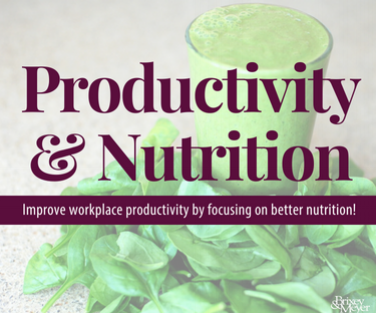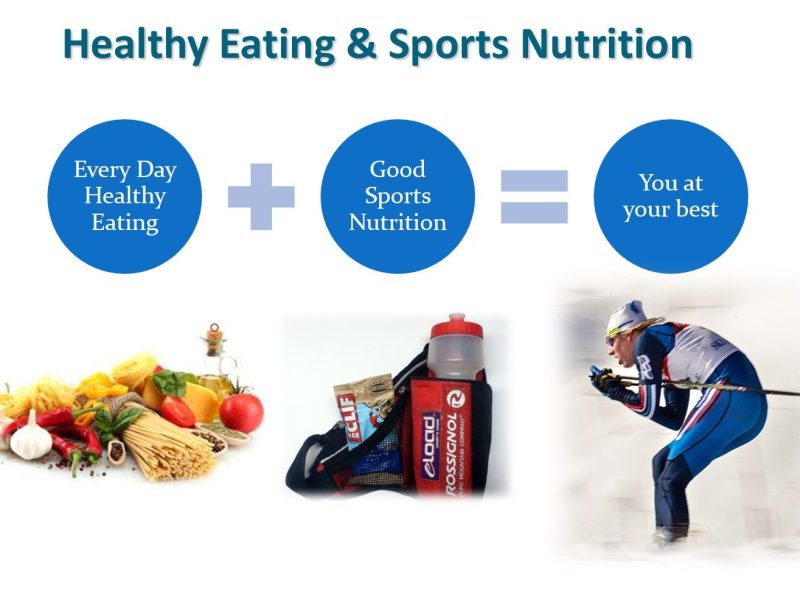Nutrition is a vital aspect of our daily lives that not only affects our overall health but also plays a significant role in our work productivity. The type and quality of food we consume have a direct impact on our physical and mental well-being, which ultimately reflects in our performance at work. This article will discuss the relationship between nutrition and work productivity and provide practical tips on how to maintain a nutritious diet for optimal performance in the workplace.
The Impact of Nutrition on Cognitive Function:
The brain requires a steady supply of nutrients to function optimally. Numerous scientific studies have consistently shown that poor nutrition negatively affects cognitive function, including memory, concentration, and decision-making abilities. Unhealthy eating habits, such as excessive consumption of processed foods, sugary snacks, and caffeinated beverages, can lead to energy crashes, brain fog, and decreased productivity.
Key nutrients that promote brain health and productivity:
Omega-3 fatty acids: Found in fatty fish, walnuts, and flaxseeds, omega-3s enhance brain function and improve memory.
Antioxidants: Found in fruits, vegetables, and dark chocolate, antioxidants protect brain cells from damage caused by free radicals.
B-vitamins: Found in whole grains, legumes, and leafy greens, B-vitamins enhance neurotransmitter function, improving mood and cognitive processes.
Iron: Found in lean meats, spinach, and beans, iron helps transport oxygen to the brain, promoting alertness and concentration.
Eating for Sustained Energy:
Choosing the right foods can provide sustained energy throughout the workday, preventing energy dips and keeping productivity levels high. Here are some strategies to consider:
1. Balanced Meals: Each meal should contain a combination of protein, complex carbohydrates, and healthy fats. Protein sources like lean meats, tofu, or legumes provide long-lasting energy, while complex carbohydrates found in whole grains, fruits, and vegetables release energy gradually. Healthy fats, such as avocados or nuts, help maintain stable blood sugar levels.
2. Regular Snacking: Opt for nutrient-rich snacks between meals to prevent hunger pangs and energy crashes. Nuts, seeds, yogurt, and fresh fruits are excellent choices that provide essential nutrients and sustained energy.
3. Hydration: Dehydration can result in fatigue and decreased cognitive function. Keep a water bottle at your desk and aim to drink at least eight glasses of water per day. Avoid excessive caffeine consumption, as it can lead to dehydration and sleep disturbances.
Meal Planning and Preparation:
1. Create a Grocery List: Plan your meals for the week and make a grocery list accordingly. Focus on nutrient-dense foods and avoid processed and convenience foods as much as possible.
2. Batch Cooking: Dedicate some time each week to prepare larger quantities of food and store in meal-sized portions. This saves time during busy workdays and ensures you have access to healthy meals without resorting to fast food or takeout.
3. Prioritize Nutritious Ingredients: When cooking, prioritize ingredients known for their nutritional benefits. Incorporate a variety of colorful vegetables, lean proteins, whole grains, and healthy fats into your meals to ensure a well-rounded diet.
Creating a Healthy Workplace Environment:
Employers can play a significant role in promoting employee wellness and productivity by creating a healthy workplace environment. Some initiatives can include:
1. Provide Nutritious Snacks: Stock the office pantry with healthy snack options like fresh fruits, nuts, and granola bars. This encourages employees to make healthier choices throughout the day.
2. Promote Work-Life Balance: Encourage employees to take regular breaks and prioritize their well-being. This can include flexible work schedules, designated break areas, or opportunities for physical activity during the workday.
3. Educate and Raise Awareness: Organize workshops or presentations on nutrition and healthy eating habits to educate employees about the importance of nutrition and how it impacts their work performance. Provide resources like newsletters or pamphlets with healthy recipes and tips.
Conclusion:
Nutrition is a key factor in maximizing work productivity. By fueling our bodies with the right nutrients, we can enhance cognitive function, sustain energy levels, and improve overall well-being. Incorporating healthy eating habits into our daily routine, planning and preparing nutritious meals, and fostering a healthy workplace environment can contribute to our success in the professional realm. Remember, a well-nourished body leads to a sharp mind and increased productivity.


